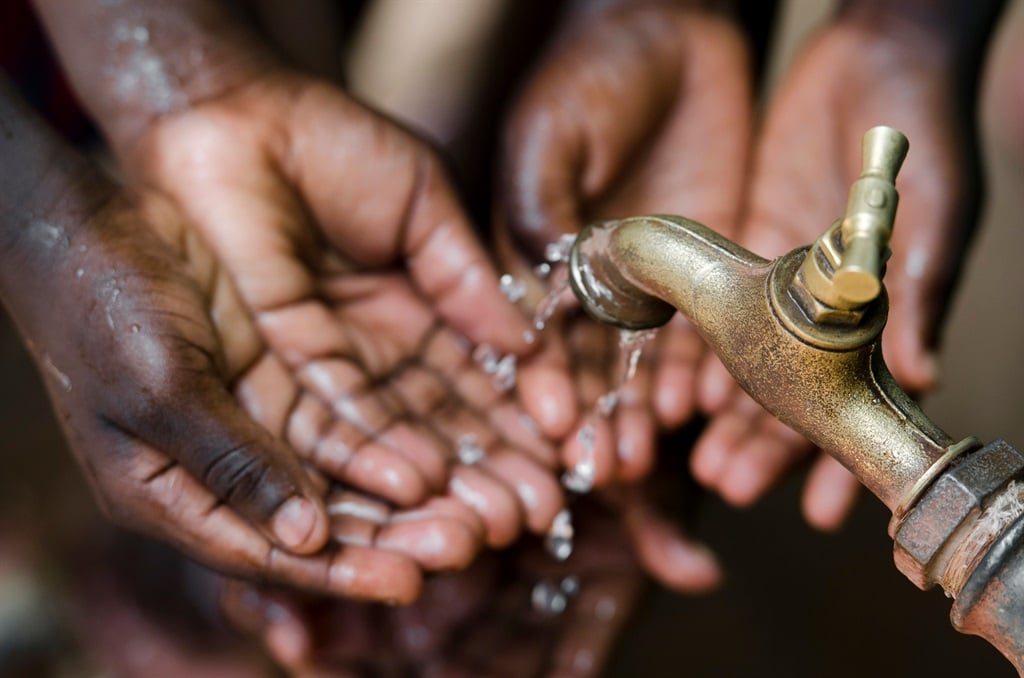
As the Thuma Mina brigade is battling the Covid-19 coronavirus, the spotlight is cast on the country’s disheartening levels of unemployment, poverty and inequality.
This novel virus has brought our inalienable right to clean water – one of the human rights enshrined in our Constitution – into sharp focus.
As I pursue my royal duties of community development to create jobs and eradicate poverty, the dreadful water situation in many rural communities tears my heart apart. Women bear the brunt of it all as our mothers, grandmothers and daughters must often fetch water from the rivers.
The risks of exposure to Covid-19 are so real, as limited access to water impedes our ability to comply with good hygiene and social distancing regulations.
Let us imagine the anguish of women and children in Ximausa village, outside Giyani in Limpopo, trying to maintain social distancing as they wait for their turn to fetch water from the river.
On top of this, the long walks undertaken by women and children to fetch water also make them vulnerable to rapists and murderers.
The ANC government has been making election promises to provide clean water and sanitation to households for nearly three decades.
But, for tens of thousands of people in villages across the country, the situation remains the same.
State-built pipelines carrying water from our own dams and rivers to affluent areas run past our dry villages.
Our calls for government to connect rural households to the water supply grid have been in vain.
It is very sad that the main obstacles to the supply of clean water and sanitation services to our communities are corruption and incompetence.
The high levels of these vices in government have, especially during the past decade, surpassed epidemic proportions.
The water reticulation project in Giyani is a heart-breaking example of a promising project that collapsed due to the looting of funds.
Here at home in my village Ha-Matsila, there are several water projects that have been abandoned and their funding is unaccounted for.
Our pleas to government authorities for the revival and completion of these projects have fallen on deaf ears.
President Cyril Ramaphosa’s administration inherited an enormous backlog on water and sanitation infrastructure from its predecessor.
The state capture project of the past decade crippled the department of water and sanitation, which was left literally in disarray and dysfunctional.
To ensure the speedy delivery of water to poor communities, the president should urgently tackle the rot and capacitate this ailing department.
The knee-jerk reaction of providing water in tankers to communities, in response to the Covid-19 outbreak, is simply not enough.
The deployment of tankers should never be celebrated because it is not a decent way to supply water to the people.
The millions of rands spent on water tankers could have been used to fix the dilapidated water infrastructure in rural areas.
Read: Councillors accused of looting food parcels meant for the poor
To overcome the Covid-19 pandemic, it is important that government prioritise the provision of water and sanitation to its most vulnerable citizens.
There has been a lot of fuss surrounding the supply of food parcels during the pandemic.
Read: Covid-19 has brought into focus the unequal access to basic services
In the same breath, government’s efforts to supply water to the poor are dismal.
If the poor had a choice, more funds would be channelled towards the provision of water to save our lives.
Under the current circumstances, common sense dictates that water supply should be more important than food parcels.
We cannot afford to relegate a precious resource and right such as water to an afterthought during this national health crisis.
The president’s Khawuleza model should come to our rescue. We can no longer stand the indignity of sharing water with domestic and wild animals.
Food parcels should be provided, but water and sanitation should be prioritised.
Matsila is chief of the Matsila royal family
TALK TO US
What will it take for government to deliver water in rural areas after years if failed promises?
SMS us on 35697 using the keyword WATER and tell us what you think. Please include your name and province. SMSes cost R1.50. By participating, you agree to receive occasional marketing material
 | ||||||||||||||||||||||||||
Get in touchCity Press | ||||||||||||||||||||||||||
| ||||||||||||||||||||||||||
| Rise above the clutter | Choose your news | City Press in your inbox | ||||||||||||||||||||||||||
| City Press is an agenda-setting South African news brand that publishes across platforms. Its flagship print edition is distributed on a Sunday. |




 Publications
Publications
 Partners
Partners








